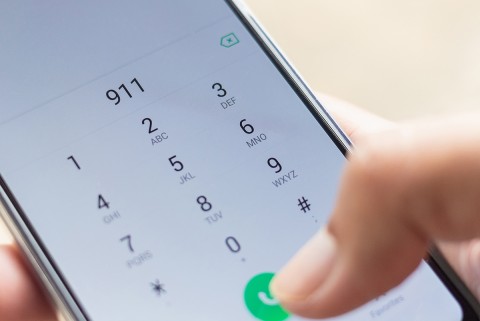Police shouldn’t be the first responders for mental health crises
When they are, the result can be deadly.

Every year, according to an analysis by the Washington Post, about 1,000 people die at the hands of police. One in four of them have a mental illness. This number seems high until you consider that an estimated 20 percent of all 911 calls involve a crisis related to mental illness and roughly 20 percent of people in jail have significant mental health diagnoses.
The criminal justice system has become the de facto substitute for an underfunded public mental health care system. The result is deadly. Recent examples include the killing of 41-year-old Daniel Prude in Rochester, New York, and 27-year-old Nicolas Chavez in Houston, Texas, along with the severe wounding of 13-year-old Linden Cameron in Salt Lake City, Utah.
Read our latest issue or browse back issues.
Consider this from the perspective of a police officer. Police receive at least 110 hours of weapons training at police academies, but they may only receive eight hours or less of crisis intervention training. Some receive none at all. When there is a crisis that involves a person with mental illness, the officer, equipped with a little training and a lot of weapons, is asked to be a behavioral specialist.
From the perspective of a person with mental illness who is in crisis, the presence of police intensifies the fear of the situation. The person might fear going to jail and, not without reason, might fear for their life.
The need for an alternative is clear.
To start with, we need programs that provide unarmed mental health professionals as first responders. For three decades, a city-funded program in Eugene, Oregon, has responded to about 20 percent of 911 calls, saving the city an estimated $15 million a year. The mental health teams have a procedure for calling in police support, but they rarely need it. Similar programs are now starting in larger cities such as San Francisco, Minneapolis, Albuquerque, and Los Angeles.
There is no question that the development of these programs would save lives. But they are only as good as the resources to which first responders can refer people. And in many communities, the criminal justice system has for decades been the only functioning public program. Many neighborhoods don’t even have grocery stores, let alone mental health clinics. Without the infusion of money and resources into vulnerable communities to create wraparound support systems, first responders can only go so far.
Historian Elizabeth Hinton has traced the transformation of the social agenda of the 1960s into the now flourishing mass incarceration agenda. One part of this transformation was the abandonment of people with mental illness to a criminal justice system ill-equipped to support them. Changing this requires a national reckoning around the nature and purpose of policing. It also requires each municipality to create meaningful solutions outside traditional policing—to make sure local businesses, churches, and others have someone to call when confronted with a mental health emergency.
A version of this article appears in the print edition under the title “Who do you call?”






